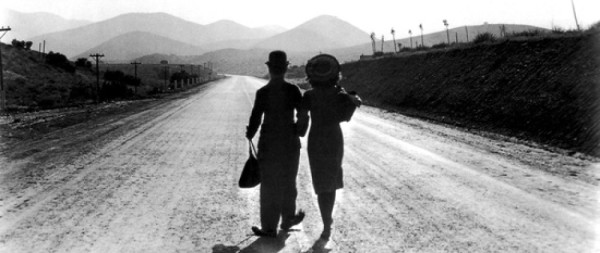The Champ 
Directed by King Vidor
Written by Frances Marion and Wanda Tuchock
1931/US
Metro-Goldwyn-Mayer
IMDb page
Repeat viewing/Amazon Prime rental
Dink Purcell: The Champ and I ain’t fixed up swell as this, but our joint’s more lively.
This sentimental but gritty melodrama works well due to its direction and cast.
Andy Purcell (Wallace Beery) is the former Heavyweight Champion of the World. Currently, he is living in Tijuana with his son Dink (Jackie Cooper). He is now out of shape with drinking and gambling problems. Every time he earns money it seems to disappear into the bottle and the dice table. Dink does an admirable job of taking care of him.

After a night of good luck, Andy buys Dink a racehorse which Dink names Little Champ. The two prepare to enter Little Champ in a race. Coincidentally, Dink’s mother Linda (Irene Rich) owns a horse that is in the same race. When she meets Dink she desperately wants to take him away from his sordid life with The Champ. She bribes Andy into letting her see Dink in her palatial San Diego digs. Dink is unimpressed.
Andy finally lets Dink go after he is put in jail for a fight and is down to his last nickel. But the boy runs away. Miraculously, Andy gets an opportunity to fight the Mexican Heavyweight Champion. Where will Dink land?

Jackie Cooper is completely winning in his part and may be the best crier of all times. While Beery is unconvincing as a boxer, he is a loveable lug. I was entertained. Recommended.
Wallace Beery tied for the Best Oscar Actor with Fredric March for his performance in Dr. Jeckyll and Mr. Hyde (1931). The film was nominated in the categories of Best Picture, Best Director, and Best Writing, Original Story.


















 This could have been a rather funny and sophisticated farce in the hands of Lubitsch. Unfortunately, we get actors must who have been coached to speak their lines in as affected and wry manner as possible. This got on my nerves and by the end of the film I didn’t care what happened to anyone.
This could have been a rather funny and sophisticated farce in the hands of Lubitsch. Unfortunately, we get actors must who have been coached to speak their lines in as affected and wry manner as possible. This got on my nerves and by the end of the film I didn’t care what happened to anyone.



 While he is in the city, he meets Kate (Mary Duncan) who hates her job as a waitress in a chaotic stifling diner. She is constantly groped and ogled. Charles comes back every day. He defends her and they fall in love. On the day Charles is to return home, they marry.
While he is in the city, he meets Kate (Mary Duncan) who hates her job as a waitress in a chaotic stifling diner. She is constantly groped and ogled. Charles comes back every day. He defends her and they fall in love. On the day Charles is to return home, they marry.
 This movie is perfect in my opinion. It’s not the equal of Murnau’s “Sunrise” but close. Everything feels quite real to me. There is a scene where the lovers run through the wheatfields that is positively lyrical. We also get loving shots of everyday country life and the harvest .Every single element is fantastic. AND it is currently available for free on YouTube in a good print. Highly recommended.
This movie is perfect in my opinion. It’s not the equal of Murnau’s “Sunrise” but close. Everything feels quite real to me. There is a scene where the lovers run through the wheatfields that is positively lyrical. We also get loving shots of everyday country life and the harvest .Every single element is fantastic. AND it is currently available for free on YouTube in a good print. Highly recommended.